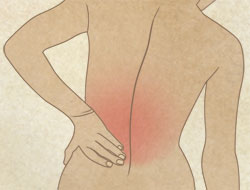In this section you will practise asking a patient about symptoms.
1. Vocabulary: Aches and pains.
Match the sentences to the pictures.
Now listen and repeat the sentences.
2. Vocabulary: Aches and pains.
Look at the examples again. What is the word in bold? Choose the correct option.
Note: The verb hurt is irregular.
My foot hurts. (present)
Yesterday I hurt my toe. (past)
These are common combinations with the noun ache: headache, backache, toothache, stomach ache.
4. Vocabulary: Symptoms.
Match the description to the pictures.
7. In the surgery.
Daniel has an appointment with his doctor. Watch the video. What is the problem?
8. In the surgery.
Watch the video again. What are Daniel’s symptoms? Select the symptoms he describes.
9. Complete and listen.
Use the phrases to complete the dialogue. Then listen again to check your answers.
10. Questions.
Order the words to make questions.
Remember: We use do with I, you, we and they. We use does with he or she.
For example:
Do you have a temperature?
Do you have any other symptoms?
Does your leg hurt?
Does your son have any allergies?
For more information about the present simple see the Grammar Reference.
Speaking Tutorial 2
In this tutorial you will talk about what you do during a physical examination, ask questions about symptoms and make a diagnosis.
- Hello. This is ... I am calling to do the speaking tutorial. How are you today?
- Fine thanks. And you?
- I’m fine too.
Talk about what you do during a physical examination.
- First I ...
- Then I ...
- Next I ...
Ask questions about symptoms
Ask your tutor questions to make a diagnosis.
For example:
- Do you have a temperature?
- Do your eyes hurt?
- Does your leg hurt?
- Is your ankle sore?
- Do you have a pain in your stomach?
- How long have you felt like this?
- Do you have any other symptoms?
- Do you have any allergies?
Talk about being ill
What are common medical problems that patients have?
Do you get ill very often?

